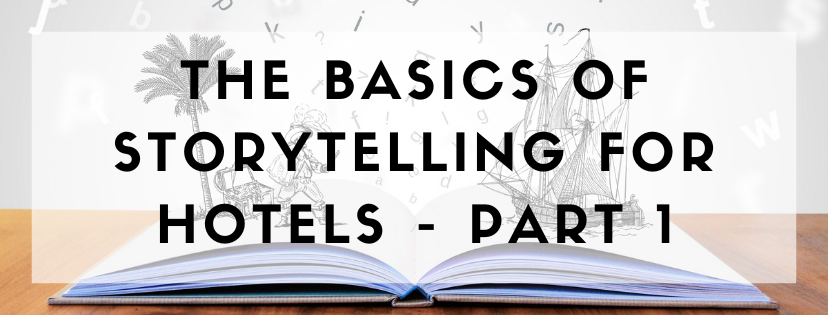
Think of your favorite book or movie. How hard is it to tear yourself away from it?
Now, why is that? Probably because the characters are entertaining/interesting and the plot is exciting. In short, the storytelling is enthralling and keeps you hooked.
Marketers have long understood this power of storytelling and use it to promote their brands and products.
The hospitality industry is no exception and storytelling for hotels is rapidly gaining traction.
But what’s behind this often-touted marketing technique?
That’s what we’ll cover in this three-part article series about storytelling for hotels.
We’ll kick off the series with this article about what storytelling really is. Then we’ll go over which three elements you need to create a riveting narrative for your target audience.
Let’s get into it!
What is storytelling for hotels?
Stories and storytelling are part of our everyday lives. Novels, movies and songs tell stories that entertain and move us. We share stories about our life with friends and family to connect with them.
And, to bring this back to marketing, every advertisement tells a story. Usually, it’s about how a product or service solved a problem or addressed a need and made the customer’s life better.
Considering all this, how about the following definition: Storytelling means using a story or narrative to build a connection between your customers and your brand. In short, storytelling adds the spirit to your offering and builds its perceived value.
So, what should your story be about? The best narrative is about the point where your offer intersects with your clients’ values or needs.
Here’s an example of how this could apply at your hotel:
- Your property provides a space where families can enjoy a break together and have memorable experiences in nature.
- Your potential guests’ values include spending quality time with their loved ones and instilling a love for the outdoors in their kids.
→ The “outdoor family holiday” is where your offering and your guest’s values intersect. Therefore, it should take center stage in your narrative.
Addressing your ideal guest’s values is getting increasingly important. Research has shown that 94% of consumers say it’s important that companies they buy from have a strong purpose. Another study found that 71% of millennials are willing to pay more if a brand aligns with their values.
Now that we’ve covered the basics of what storytelling is and does, let’s examine three key elements that make it work.
1. A hook – Starting your story
Today’s crowded online space means it’s crucial to stand out and immediately grab your reader’s attention.
Studies have shown that you only have eight seconds to do so. That’s how long people take on average to decide if they want to stay on your site or bounce. That’s not a lot!
This means you need a catchy introduction that shows people they’ve come to the right place.
A telling leader image that highlights your USP (unique selling point) on your hotel website home page is a start. Strong headlines and descriptive copy that further relate to your USP and go with your photos are also a must.
Make your story clear above the fold (before site visitors need to scroll), for extra impact.
The same counts for social media. Feature the USPs your audience wants to know about in beautiful images and engaging captions.
When done right, this activates peoples’ imagination and makes them dream of spending time at your hotel.
What’s the secret to drawing in potential guests, and getting them to book?
Get access to my free video training now, if you want to…
… learn how to leverage the power of storytelling and personal branding at your hotel to drive more direct bookings and keep more of your revenue!
By entering your details, you get access to sporadic newsletter-style emails about all things hospitality copywriting, including products and services I think you might like. You can unsubscribe anytime. I will protect your information in accordance with my privacy policy.
2. Your main character and their needs/desires
You know that your website and social media are there to get your target market’s attention and encourage them to book. However, the story you tell there is not about you. It’s about your guest. They’re the main character – your story’s hero.
Your property is the physical setting. But the story is built around your guest and what they can do and experience at your hotel. Highlight these aspects to start building a connection with your site visitors.
The better you know your audience and their desires/needs, the easier it’ll be to do this. Having sample guest personas will help you organize your thoughts and get a solid understanding of what your main target markets want from you.
When potential guests browse your hotel website, they ultimately want to know what you can do for them. The better you can show how you do that, the easier it is to engage them.
Here’s an example:
Carrie and Tom are planning a trip with their young kids. They want to get out of the city, spend time outdoors and have unforgettable experiences (desire).
Resulting need:
- A hotel in a destination where the whole family can have fun adventures together on- and off-site
- A variety of age-appropriate activities and facilities for all family members
→ Use storytelling to
- Highlight possible experiences at your hotel or in the surrounding area
- Stimulate your reader’s imagination with descriptive copy and matching images
- Build desire for a stay at your property
3. Your (story’s) purpose
When we talk about purpose, there are two important aspects to cover.
First, it’s your hotel’s why. Getting clear on that will make it easier to build a story that resonates with your target audience and reflects the essence of your business. That’s the baseline for being able to build a connection with your potential guests later on.
Purpose also comes into play every time you create content to tell your story. Whenever you decide to tell a specific story, know its purpose, i.e. why you’re telling that particular story.
For this, ask yourself the following questions:
- Why am I telling this story?
- What do I want to get readers to do?
- Which message do I want to send?
That way you can work towards your goal and ensure your online presence always has a coherent central theme.
Skip this step and you risk creating an unclear image of your hotel. That will leave your audience confused about your offering and could even drive them away.
Aaaaand that’s a wrap for part one of the three-part article series about storytelling for hotels.
Now you know the basics of storytelling for hotels and how it can help you connect with your ideal guest.
👉 Next, head over to part two of the series.
In that piece, we’ll look at the role storytelling plays on your hotel website. You’ll also learn how to develop a consistent brand voice that suits your property and your guest persona.
What’s the secret to drawing in potential guests, and getting them to book?
Get access to my free video training now, if you want to…
… learn how to leverage the power of storytelling and personal branding at your hotel to drive more direct bookings and keep more of your revenue!
By entering your details, you get access to sporadic newsletter-style emails about all things hospitality copywriting, including products and services I think you might like. You can unsubscribe anytime. I will protect your information in accordance with my privacy policy.


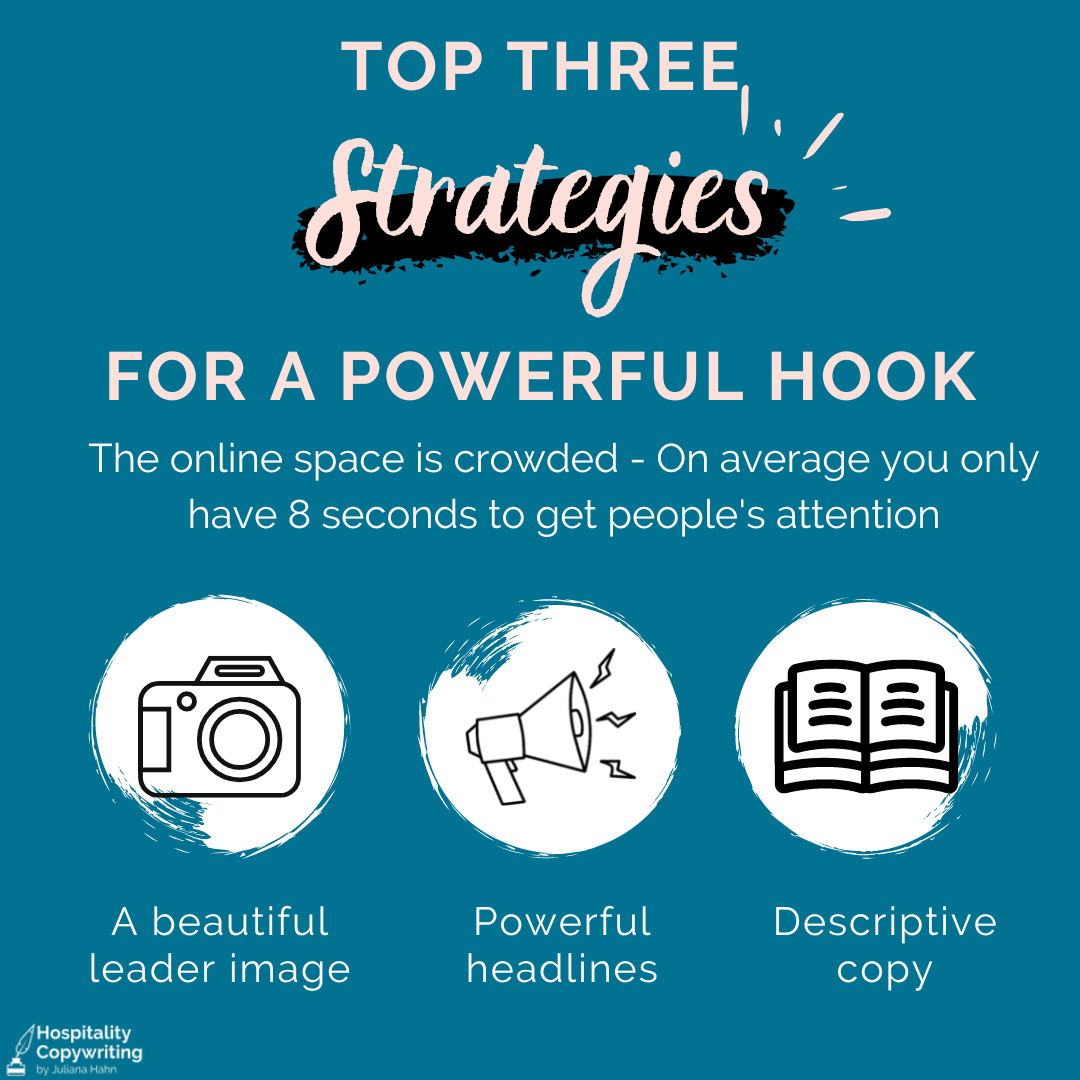
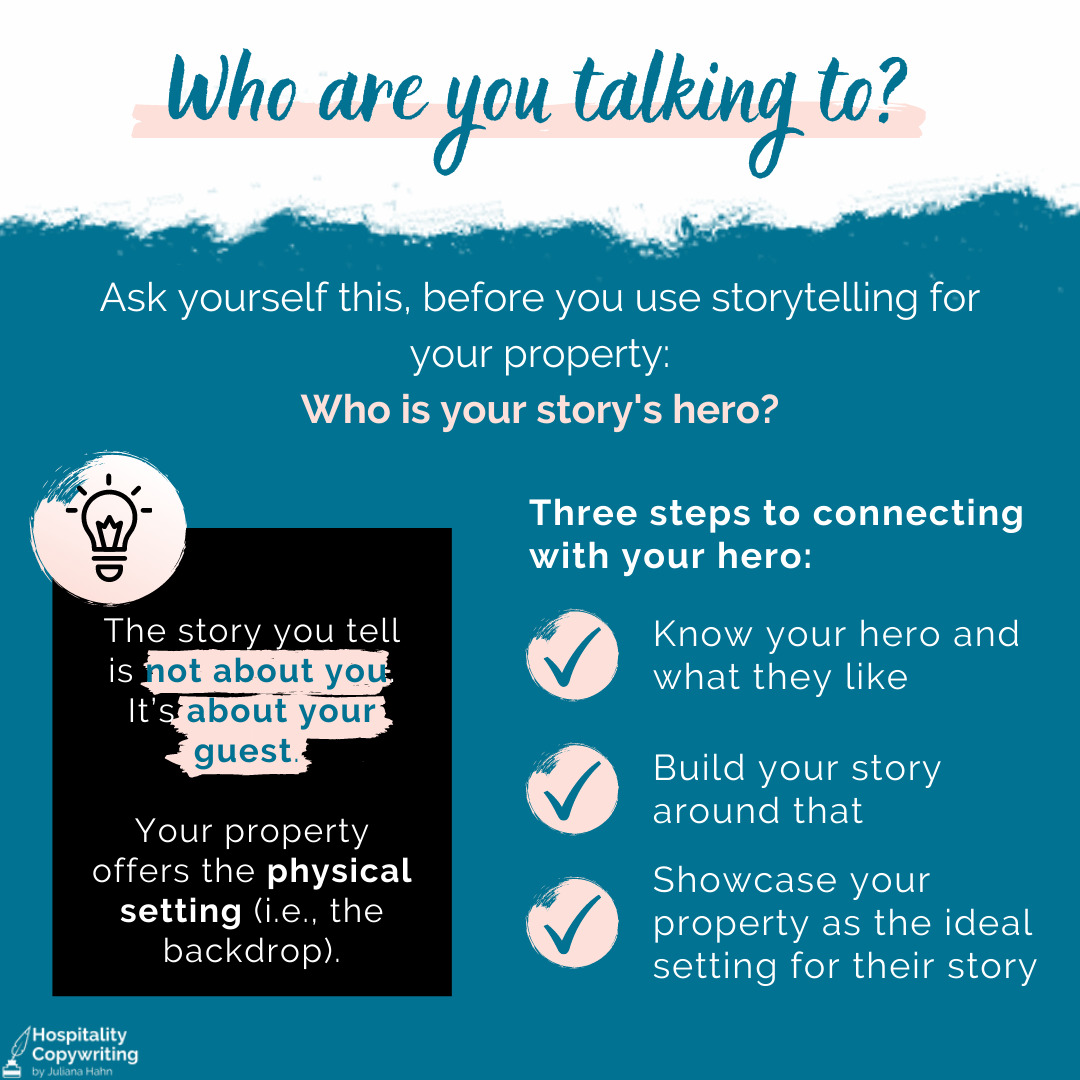
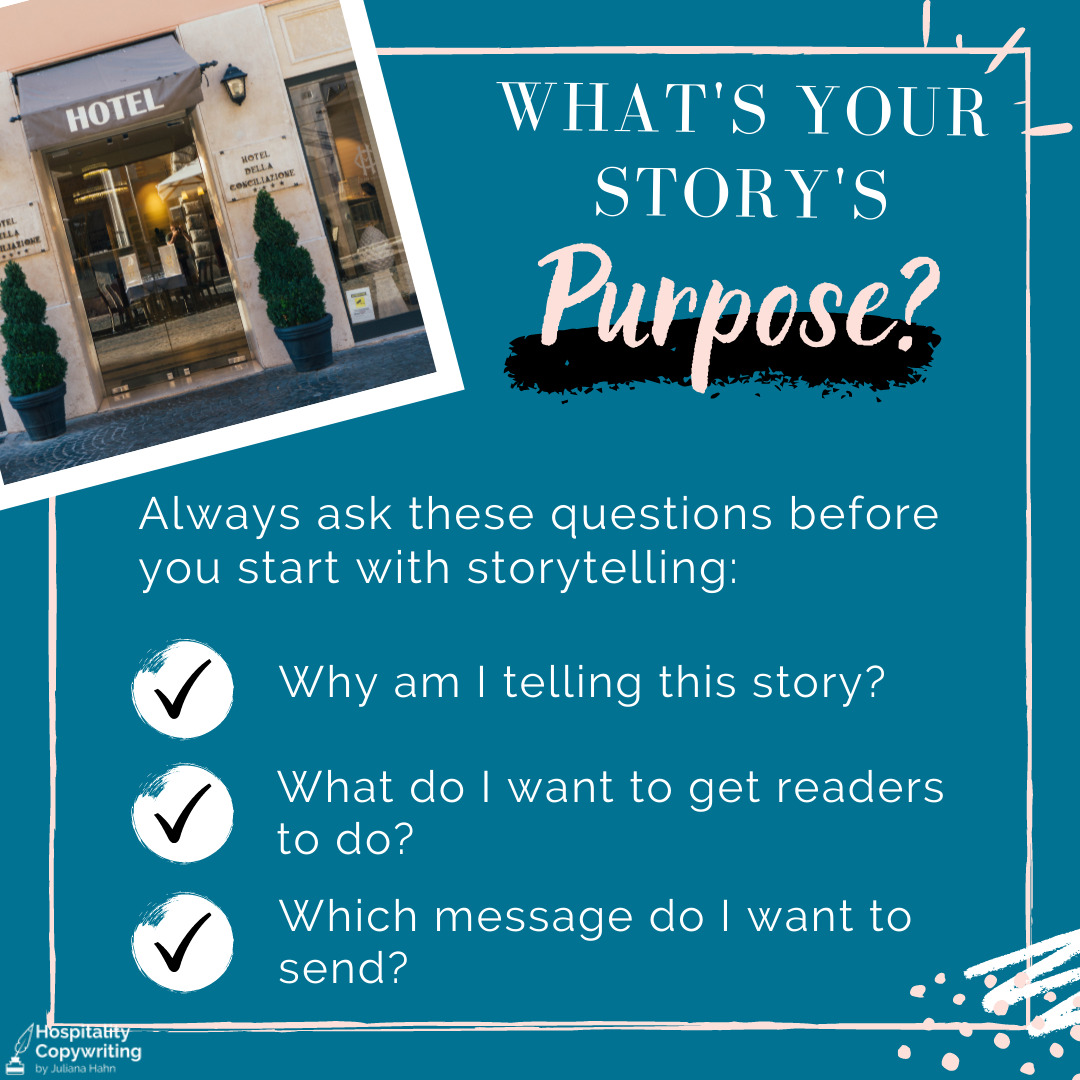
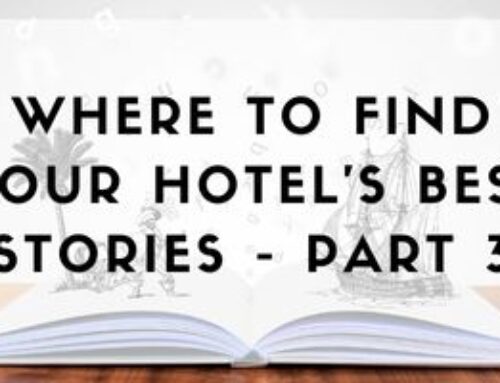


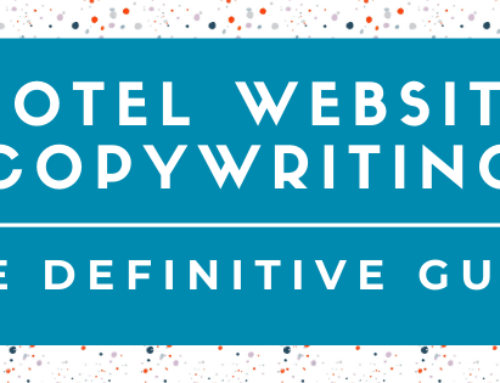

Leave A Comment